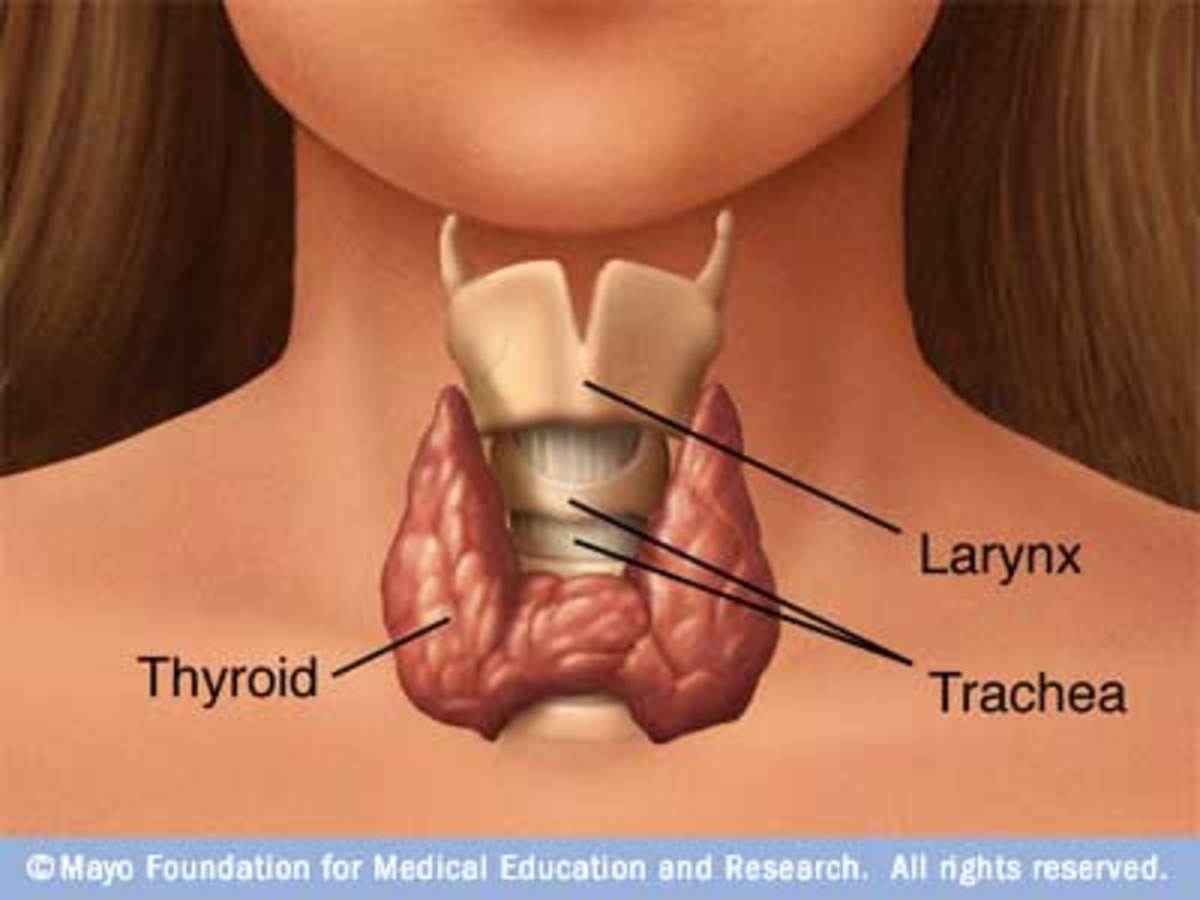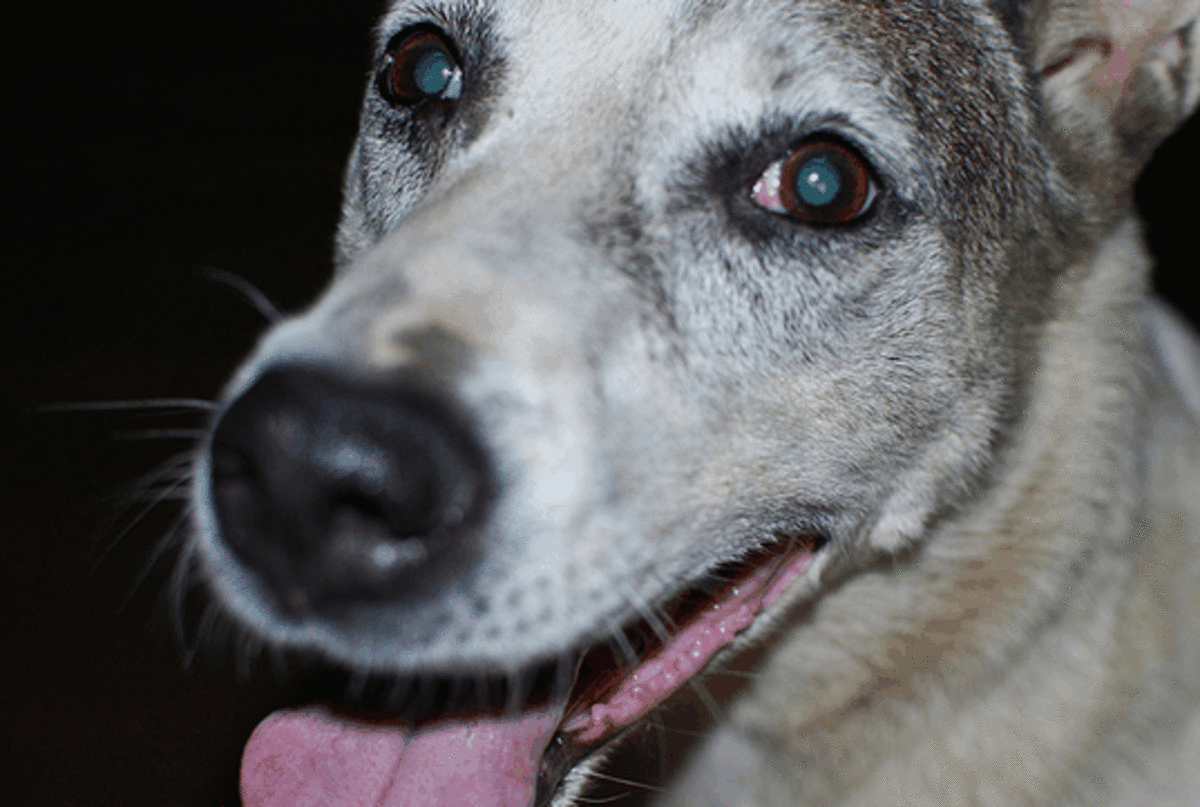Hypothyroidism in Canines

Many different health conditions can affect your dog during his or her life. There are some obvious to the owners. Some veterinarians know recognize quickly. Another category is health problems that go unrecognized or misdiagnosed. In this grouping, you are sure to find hypothyroidism.
What Is Hypothyroidism?
Hypothyroidism, as the name indicates, is an under production of hormones by the thyroid gland. This gland is a significant body part located just beneath the voice box on your dog’s neck. It secretes various important hormones. These include triiodthyronine (T3) and thyroxine (T4).
Thyroxine, a significant hormone, regulates the metabolic rate of the dog’s body. If a thyroid malfunction reduces the production of this hormone, major health issues can result. In hypothyroidism, the lack of thyroxine affects the speed of operation of the various affected parts, slowing down such things as weight control and energy levels
A hormonal malfunction of the thyroid gland, causal factors can be either primary or secondary. Primary causes include destruction of the gland through various means. These include inflammation from a destructive response of the immune system. Under certain conditions, often inherited, (called autoimmune thyroiditis or lymphocytic thyroiditis) the immune system may attack the tissues of the thyroid gland. Alternatively, the thyroid tissue may actually atrophy leading to decreased production of hormones.
Yet, hypothyroidism may also arise from other diseases, disorders or unrelated health issues. This is a secondary cause of hypothyroidism. Yet, whether the cause is primary or secondary, the impact upon your dog is the same. The thyroid gland decreases or even ceases its production of essential hormones.
Who Is Most Affected?
Hypothyroidism may attack any canine, but rarely cats. Yet, certain ages and breeds are more likely to get the disorder. The most common age of occurrence is between 4 and 10. The disorder, while rare in toy and miniature breeds, is more common among mid to large size breeds. Certain breeds appear to be predisposed to hypothyroidism. These consist of but are not restricted to the following:
· Airedale Terrier
· Boxer
· Cocker Spaniel
· Dachshund
· Doberman Pinscher
· Golden Retriever
· Great Dane
· Greyhound
· Irish Setter
· Miniature Schnauzer
· Poodle
· Shetland Sheepdog
Neither males nor females dominate the statistics. However, in the data, neutered and spayed canines are more common than are intact dogs. Mixed breeds and certain purebreds such as German Shepherds also seem to be less susceptible to hypothyroidism.
Symptoms of Hypothyroidism
Many symptoms indicate hyperthyroidism. Unfortunately, several are similar to those associated with other health issues. Furthermore, some indicators are so understated as to pass unnoticed at the early stages of the problem. The list of symptoms includes:
· Inexplicable weight gain
· Sluggishness
· Hair loss
· Lack of liveliness
· An intolerance of exercise
· The canine constantly looks for the warmest place in the house or outside.
· Coat appears to be brittle, dull, and thinning lacking a shine
· Skin may be either dry or oily
· The dog suffers from an ongoing StaphylococcusAureus (staph) infection
· Ear and/or yeast infections may keep occurring
Detection And Treatment
Your vet can detect hypothyroidism through a series of blood tests. These measure the amount of T2 and T4. Once determination is conclusive, treatment will become a daily matter. In order to ensure the return of hormone production, your vet will prescribe a thyroid pill. This contains a synthetic thyroid hormone called thyroxine (levothyroxine). It is up to you to make sure your dog takes this medication according to the veterinarian’s instructions (usually once or twice a day) for as long as he or she lives. You must also take your dog for annual and perennial check-ups so your vet can monitor the hormone levels
Conclusion
Hypothyroidism is not a common enough problem for instant recognition. Many vets, let alone owners fail to recognize the symptoms, or mistake them for another problem. Your pet may simply gain weight and move slower. Once your vet has identified the problem, you can take the right measures. This will help your dog to regain an active, healthy and full life.





